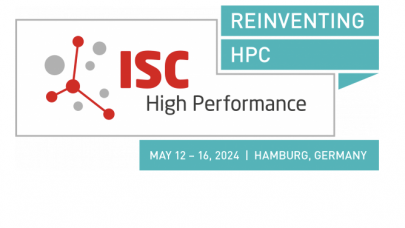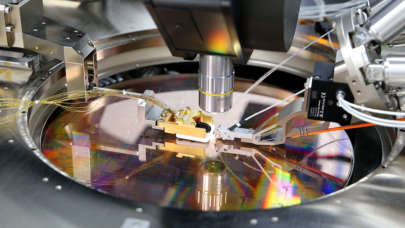Will Obama Kill Science? When I saw that headline in National Review Online (NRO), I thought it might be a good opportunity to read a fresh perspective of the Dems approach to science policy. Boy, was I wrong. Instead what I got was a paranoid rant from John Derbyshire on how a “Marxist” Obama administration would shut down “human-sciences” research.
National Review is an icon of conservative journalism, and while that flavor of politics is not for me, I occasionally read the publication to see how the other half thinks. For the past few years, though, NRO has become a place where intelligent discussions go to die. I’ve got to believe that the anti-intellectual tenor of the pub would probably not have pleased its founder, William F. Buckley Jr., who died in February. Unfortunately, this is where mainstream conservatism finds itself today.
But when I saw Derbyshire’s piece that purports to ask how genomic research in the U.S. is being inhibited by public policy, I thought he might shed some light on a serious topic. The thrust of the article is that the political Left is holding back research in this area — especially research that might uncover genetic differences in races or ethnic groups. The premise is that left-thinkers are too squeamish to entertain the idea that genetics influences cognitive and personality characteristics, since that might lead to politically incorrect conclusions about the equality of races. Says Derbyshire:
Name any universal characteristic of human nature, including cognitive and personality characteristics. Of all the observed variation in that characteristic, about half is caused by genetic differences. You may say that is only a half victory; but it is a complete shattering of the nurturist absolutism that ruled in the human sciences 40 years ago, and that is still the approved dogma in polite society, including polite political society, today.
Derbyshire has an axe to grind here and has written on this topic before. He seems quite sympathetic to the idea of racial superiority based on genetic characteristics, and has admitted on at least one occasion to being a homophobe and a racist (although, he claims, a mild one — whatever that means). Furthermore, he thinks Obama is a cultural Marxist — and brings up the ridiculous Ayers connection to prove his point. As a result, he says, that would make an Obama administration particularly unfriendly to any research that challenged an egalitarian view of the human race.
As evidence of the hostile climate this type of research is operating under, Derbyshire points to some anecdotal experiences of genetic researchers and policy-makers who are running into government obstacles. One blogger he quotes is someone named Godless Capitalist, who says:
The fact is that it is incredibly difficult even today to do this research. Genomics has been an area of “regulatory oversight” in that the Hapmap and related high throughput SNP.
There are a bunch of problems with Derbyshire’s analysis. First is the assumption that the Left controls the science research community in the government. This seems far-fetched. The Republicans have been in power in all three branches of the federal government for six of the last eight years. And the Democratic Congress that took over in 2006 could hardly be described as Marxists. Obama certainly is not. In fact, only about 20 percent of Democrats would even describe themselves as liberal. Derbyshire would do well to remember that the last and only time the U.S. was run by left-leaning radicals was 1776.
More to the point, most of the current leadership at federal agencies was put in place by Bush appointments. If genetic research is being chilled, it is more likely the result of Bush and this anti-science crusade, not free-wheeling Marxists.
The most revealing part of the article comes when Derbyshire includes a post from a recent thread on genetic research. I’ll reproduce it here for full effect:
[Sarah] Palin is the most libertarian candidate to run since the Reagan administration … we’re fighting to hold territory, not to take it. We just need to hold off the left till genomics can come through. We’re going to be knocking off sacred cow after sacred cow in the next decade or so …
The Democrats do not want the genetic discoveries to lead to widespread knowledge about the truth about human differences. The Democrats are really more anti-Darwinian than the fundamentalist Christians who deny the origin of species …
We need to step very carefully as we are going up against the official state religion, namely PC. Until we reach critical mass we’ll be convicted in the media and go straight to the gulag rather than be afforded the benefit of a Scopes trial. Just think of how many fedguv bureaucrats and NGOs owe their livelihoods to the axiom of equality. An Obama administration will passionately go after the heretics.
The Left’s restraints on science do not get publicized. Where’s the big research for IQ genes? Where’s the funding for that? Where’s the big research program for psychometrics? The Left strangled that very thoroughly.
First, let’s parse that second paragraph that juxtaposes Democrats with fundamentalist Christians. Putting aside the fact the poster is probably assigning Democrats to the wrong role, the statement still makes no sense. What he or she seems to be saying is it’s worse to question one aspect of heredity than to deny the whole concept of evolution.
Casting Sarah (‘you betcha’) Palin as the second coming of Charles Darwin is particularly amusing, but I think it reflects Derbyshire’s own problem (besides being a racist, that is): He doesn’t seem to know his Right from his Left. For a guy who has a background in mathematics and computer science, you would think he would bring some of that intellectual discipline into his writing.
And if Derbyshire is under the impression that a McCain-Palin administration would be a genetic researcher’s dream ticket, he should probably listen more closely to what the candidates are saying.
Neither party’s candidate is talking much about science policy these days, given the end of the global financial system and all. But during Tuesday’s presidential debate, McCain did float the idea of an across-the-board federal spending freeze for non-defense and discretionary spending. That would effectively kill any new federally-funded R&D — genetics or otherwise. Even in the absence of such a freeze, John (‘no earmarks’) McCain would probably be voted least likely to give a pass to research on say “IQ Genes” were it to show up on an appropriations bill.
And what about comrade Obama? The federal budget problems he will inherit are probably going to constrain any big ramp up in science and research spending, so the search for IQ genes isn’t likely to be at the top of his agenda either. But unlike people such as Derbyshire, Obama has little to prove about the superiority of one race over another.
Of course, the whole hypothesis of linking multi-dimensional attributes like cognitive ability and personality to specific racial pools is questionable. While Derbyshire obviously thinks this is a slam dunk, the conventional wisdom out there doesn’t. Many geneticists even dispute the entire concept of distinct human races. But that shouldn’t prevent scientists from doing the research to uncover the truth. As always, it will be up to society to decide what to do with the information.


























































